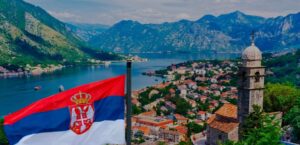
According to Serbian Economist, the Serbian government has adopted a new resolution on financial support for domestic hoteliers, which provides, in particular, subsidies of up to €5 million for cooperation projects with international hotel brands.
The measure is aimed at improving the quality of hotel offerings and increasing tourism revenues, including by extending the tourist season.
Grants may be awarded to companies and entrepreneurs registered to operate in the hotel business and listed in the e-Turista system, as well as investors planning to build new facilities.
It is noted that in order to receive support, the applicant must have a franchise agreement with an international hotel chain or at least a letter of intent confirming future cooperation. The accommodation facility must be categorized as at least four stars. In the document, an international chain is defined as a legal entity that manages at least 50 hotels and operates in at least 10 countries on at least two continents.
The subsidy is provided on a non-repayable basis, with a maximum amount of €5 million per investment project. The list of eligible expenses includes franchise and branding fees, digital integration, and staff training. There is also a requirement that the property purchased with the support must be new, and the investor is obliged to ensure the continuous operation of the hotel in the declared category for at least five years from the date of opening.
Applications will be submitted after the announcement of a public selection process, and the decision on the allocation of funds will be made by a special working group based, in particular, on the business reputation and economic sustainability of the project. Recipients must regularly report to the relevant ministry on the use of funds and provide documentation prepared by an auditing company with professional liability insurance; if the conditions are violated, the state will be able to demand the return of funds with interest.
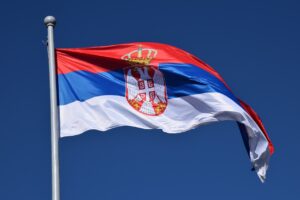
According to Serbian Economist, the Serbian Ministry of Education has announced the financing of educational materials for migrant schoolchildren, including the translation and adaptation of materials into Ukrainian, as the language barrier remains one of the key challenges in integrating children into the education system.
Education Minister Dejan Vuk Stankovic noted that more than 5,500 migrant and asylum-seeking students have consistently passed through the Serbian education system. According to him, the ministry continues to support schools where migrant children study: mentors and external consultants are involved, and teaching materials are translated into the students’ native languages, currently Ukrainian and Arabic.
Stankovic reported that as part of this work, training events were held for more than 4,000 educators, teachers, principals, and support specialists, and more than 70 schools received support through grants. In addition, more than 3,000 individual support plans have been prepared and more than 10,000 additional classes have been held; support measures also included the distribution of books, textbooks, and school supplies.
The ministry also noted that the work on translating materials and supporting schools is being carried out with the participation of international partners. However, the amount of expenditure and the number of textbooks printed or materials translated into Ukrainian were not disclosed in the ministry’s public statements.
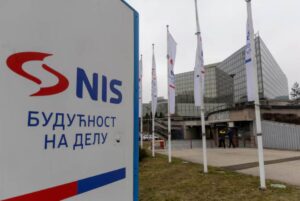
According to Serbian Economist, the Office of Foreign Assets Control of the US Department of the Treasury (OFAC) has issued a temporary license to Serbian oil company NIS, controlled by Russian shareholders, to continue operating until January 23, 2026, said Serbian Minister of Mining and Energy Dubravka Djedovic-Handanovic.
According to her, the decision means the resumption of operations at the Pančevo refinery after a 36-day pause. U.S. restrictions, which came into effect in the fall, had earlier blocked oil supplies via the refinery’s only crude import route – through Croatian pipeline operator JANAF.
NIS operates a refinery with a capacity of 4.8 million tons per year and the largest network of gas stations in Serbia (327 stations), providing about 80% of fuel consumption in the domestic market.
Earlier OFAC gave NIS a deadline of March 24 to negotiate the sale of the Russian owners’ stake; in the company’s capital structure Gazprom owns 11.3%, Gazprom Neft – 44.9%, the Serbian state owns 29.9%. Serbian President Aleksandar Vucic reported that Gazprom was in talks with Hungary’s MOL about a possible deal.
https://t.me/relocationrs/2042
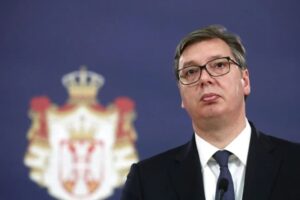
According to Serbian Economist, Serbian President Aleksandar Vucic has announced that the country plans to introduce regular conscription in the near future.
According to him, the term of service may be about 75 days, with the final parameters still being clarified. Vučić also noted that the service should promote responsibility among young people and will not be as harsh as before.
Vučić added that Serbia continues to rearm in order to deter a possible aggressor and intends to remain out of the war.
Croatia has also announced a return to compulsory military service: in October 2025, the country’s parliament approved the reinstatement of conscription, providing for two months of basic training, with the first conscripts scheduled to be recruited in 2026.
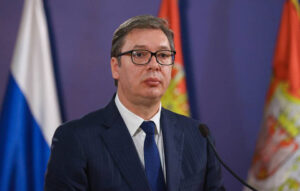
According to Serbian Economist, Serbian President Aleksandar Vucic said that early parliamentary elections will be held in the country in 2026.
Speaking to supporters outside the National Assembly building, Vučić said that the authorities had agreed to the protesters’ main demand:
“We have accepted their main demand, and soon, next year, we will go to the polls. Only they will not be so happy when the votes are counted. We are going to defeat them everywhere in Serbia,“ he said.
The Tanjug news agency specifies that the president separately emphasized the need to comply with democratic rules and that ”the country should be ruled by those who receive the majority, not those who think it is better to set fire to buildings.”
No specific date has been set for early parliamentary elections yet. Vučić spoke of voting “next year” and made it clear that he expects a campaign in which the ruling Serbian Progressive Party (SNS) will try to confirm its dominance at the national level.
The last parliamentary elections in Serbia were held early in December 2023; at that time, Vučić’s party and its allies retained their majority in the Skupština amid protests by the opposition, which challenged the fairness of the vote.
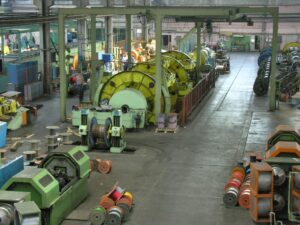
According to Serbian Economist, China’s CCSC Technology International Holdings Limited has announced that construction of a cable factory and logistics center in the Serbian municipality of Merosina is scheduled to begin in January 2026.
The company had previously expected work to start in November 2025, but has postponed the deadline. The new schedule was announced during the presentation of financial results for the first half of fiscal year 2026, which ended on September 30, 2025.
As noted in the announcement, the project in Merosina is scheduled for completion at the end of 2026. Once completed, the facility is expected to become the company’s logistics and manufacturing hub for its European operations.
The investment has been discussed with local authorities before: it was reported that the Chinese partners’ enterprise in Merosina could provide about 200 jobs.
CCSC specializes in the production of cables, connectors, and cable harnesses, which are used, in particular, in the automotive industry, robotics, and medical equipment.